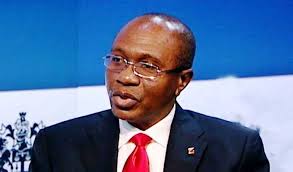The Central Bank of Nigeria (CBN) has disbursed N948 billion to 4,478,381 smallholder farmers as part of its sustained interventions in the agricultural sector to achieve food security in the country and make Nigeria a net exporter of commodities.
The apex bank’s Governor, Mr. Godwin Emefiele, gave these figures on Monday while delivering the 25th and 26th combined convocation lecture on the topic ‘The Role of Central Bank in Managing Economic Downturns’ of the Ekiti State University (EKSU), in Ado-Ekiti.
The governor explained that the sundry agricultural sector funding interventions by the bank had, in addition to encouraging farming, also generated an aggregate of 12.5 million direct and indirect jobs for the Nigerian youths.
According to him, the bank has disbursed N368.79 billion to 778,000 beneficiaries under the credit facility to help households and businesses that suffered significant losses during the dreaded COVID-19 pandemic.
Giving the breakdown of how the facility was disbursed, the CBN Governor disclosed that 648,052 households and owners of Small and Medium Enterprises (SMEs) benefited from the Federal Government-driven policy.
He said: “As you all know, one of the major challenges facing Nigerian economy is over reliance on revenues and foreign exchange earnings from the sale of crude oil, even though the petrol represents just 10 per cent of our GDP.
“Moreso, the non-oil sector, particularly agricultural and manufacturing sectors, which contribute about 30 and 13 per cent to our GDP have been confronted with low investments, inadequate credit to real sector and weak infrastructure.
“Furthermore, with an annual population growth rate of 2.8 per cent, it was important that all efforts were made available for Nigerians, particularly in sectors that had the potentials to absorb youths.
“We were aware that if necessary, support was given to households and business, productivity will rise and investment will flow into our economy”, Emefiele added.
He attributed the current economic downturn and hardship in the economy partly to the economic recession of 2015-2017 and the COVID-19 pandemic that led to revenue drop and reduction in foreign investment into the country.
Earlier in his remarks, the institution’s Vice-Chancellor, Prof. Edward Olanipekun, described the 40 years of the establishment of the university as positively impacting on socio-economic and other areas of the state and the country at large.
The university don promised that no effort would be spared to sustain the reputation of the institution as a good citadel of learning for Nigerians, in spite of the challenges being experienced.






